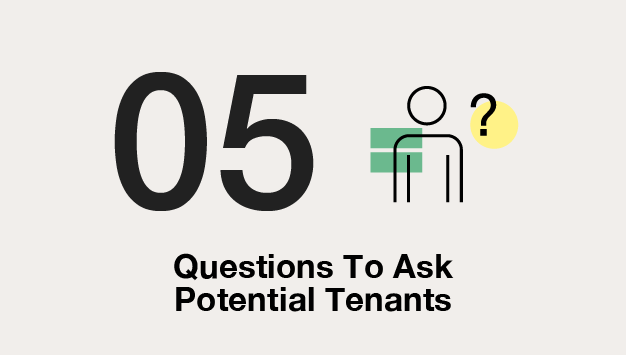
When trying to find the right tenant, you can save yourself a lot of time by knowing what questions to ask potential tenants.
Marketing a vacant rental property means you will be getting emails and phone calls from interested prospective tenants with all kinds of questions. Save time for both you and the interested caller by conducting a pre-showing interview (over the phone) that reveals whether you are right for each other.
You can also introduce a “pre-screening survey” via Google forms into your process to automatically weed out some applicants. After answering the caller’s questions about the rental property, mention that you have a few questions of your own that will help them determine whether the rental property is a good fit for them.
It also gives you a chance to see whether the caller meets your initial criteria for screening.
Top Questions to Ask Potential Renters
So, you’re at the point where it’s time to come up with questions to ask potential renters. How exciting! Here are a few top screening questions to start you off that you can ask over the phone before showing the property:
- Do you currently rent, and if so, where?
- How long have you lived in your current home?
- Why are you looking for a new place to live?
- What date would you want to move in?
- What kind of work do you do?
- What is a rough estimate of your income?
- How many people would be living with you?
- How many people living with you smoke?
- How many parking spaces would you require if you rent here?
- How many pets do you have?
- Do you think your current landlord will give you a favorable reference?
- Does your current landlord know you are thinking of moving?
- Have you ever had an eviction?
- Are you familiar with our rental application process?
- Are there any issues I should know about before I run a background screening for all the adults in the household?
- Have you filed for bankruptcy recently?
- Will you be fine to pay our lease application fee of ($ amount) if you fill out the application?
- Would you be able to pay the security deposit of ($ amount) at the lease signing?
- Are you willing to sign a 1-year lease agreement?
- Do you have any questions for me about the process?
Based on what kind of answers the caller provides, you may be able to save both of you a lot of time and energy. For example, after you ask about the caller’s pets and you explain your pet policy, you both may come to the understanding that their application would be denied based on pet ownership.
They may also learn something about the rental that doesn’t suit them and declines to pursue the property any further. Either way, you have conducted an efficient pre-showing interview that gives you time to work with truly qualified applicants.
How to Create a Pre-Screening Survey Using Google Forms
A Google Form can be a handy tool in your landlord toolbelt. In the video below we show you how to create a Google Form to automatically weed out bad applicants from your rental listings:
How to Screen Applicants After Initial Questions
The purpose of the pre-screening questions is to limit the number of bad applicants you show your rental unit to. If the applicant sounds good over the phone and passes your initial criteria, you will want to show them the rental.
Next up, we share tips for showing your rental property.

